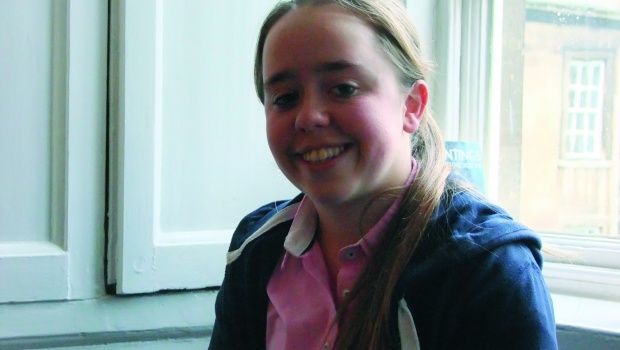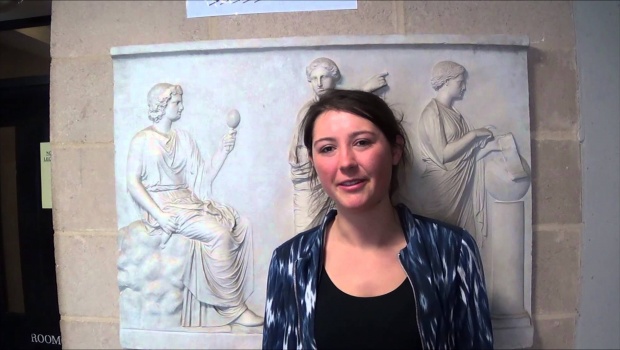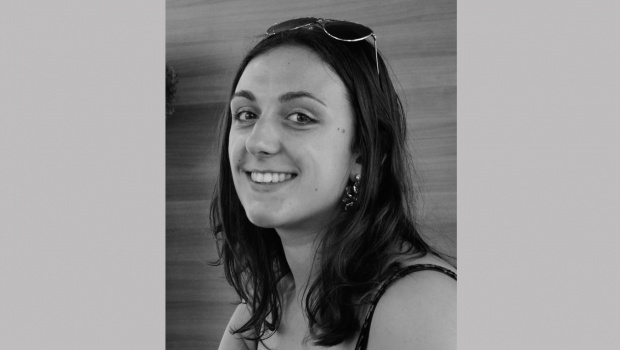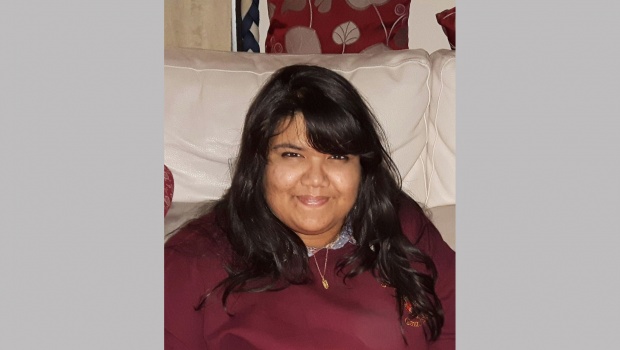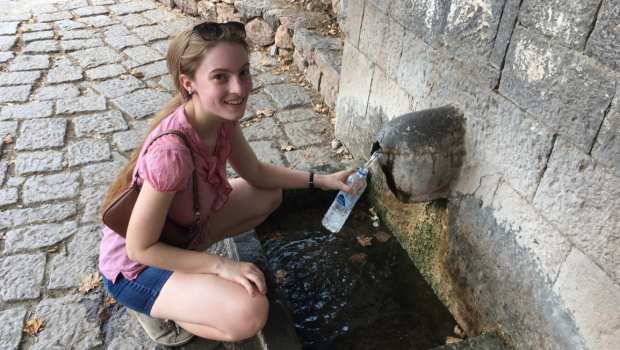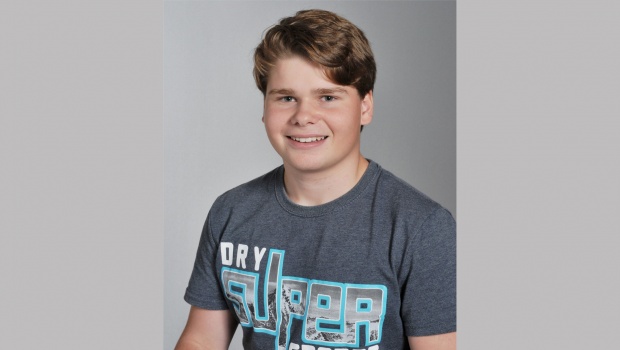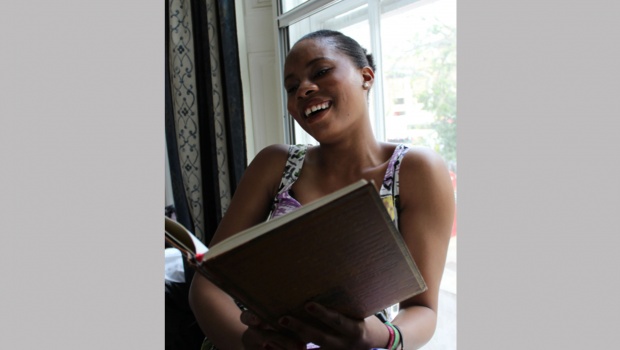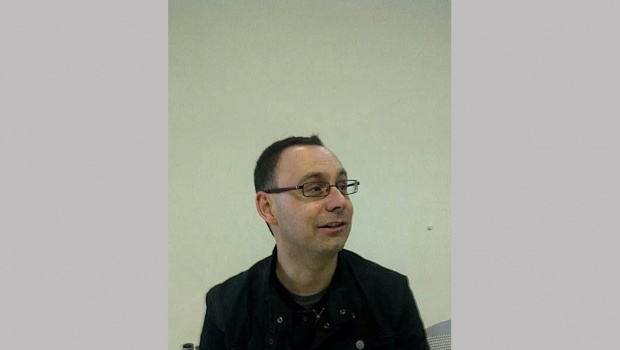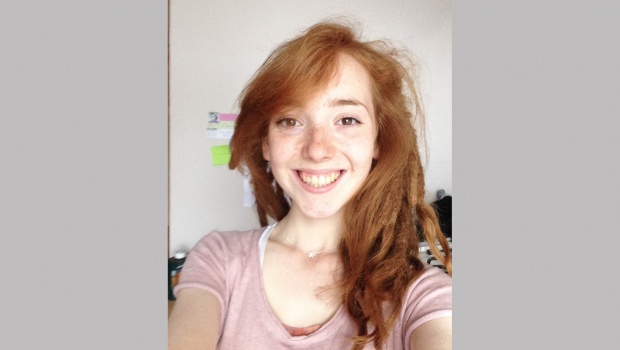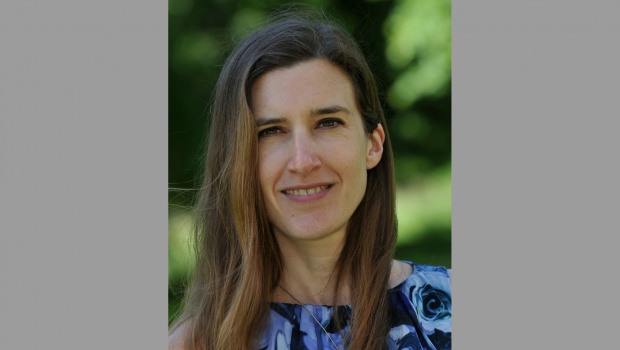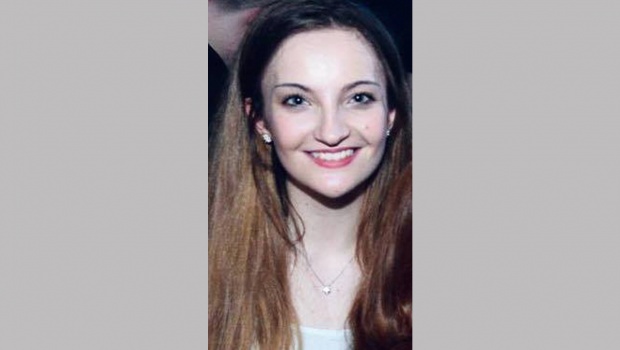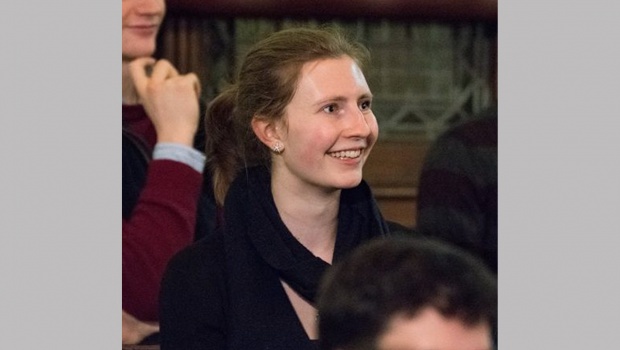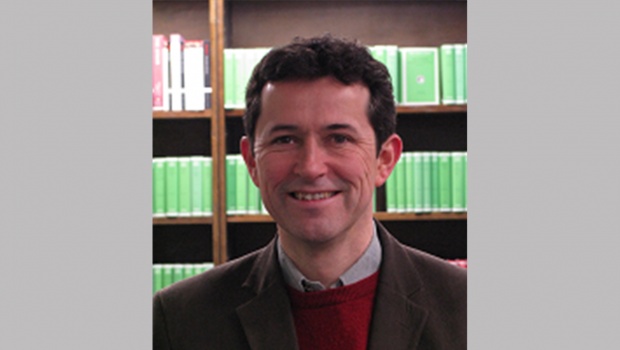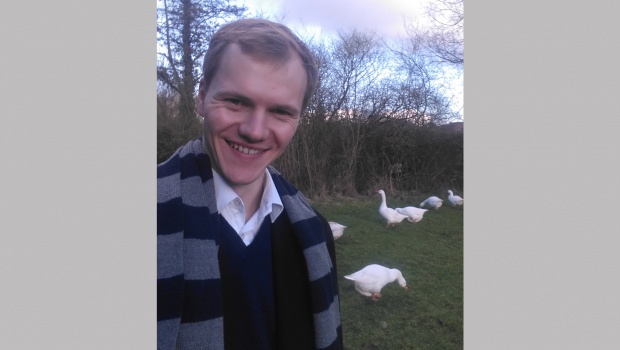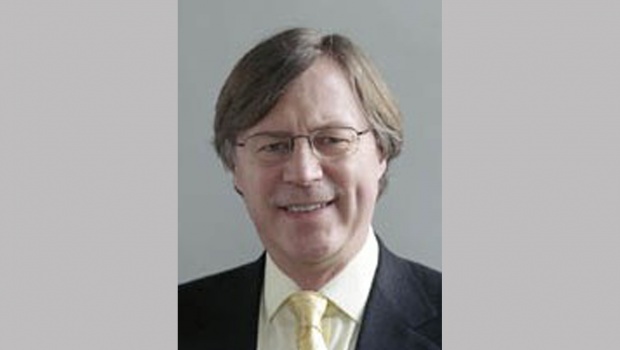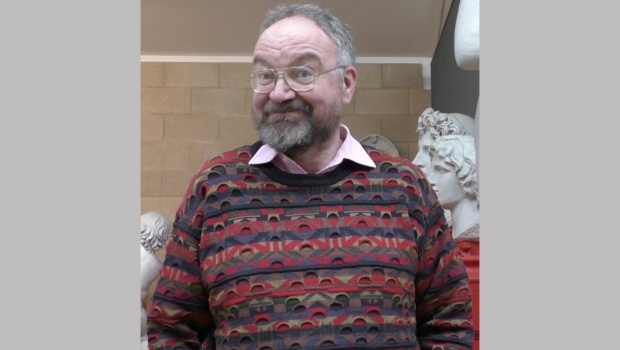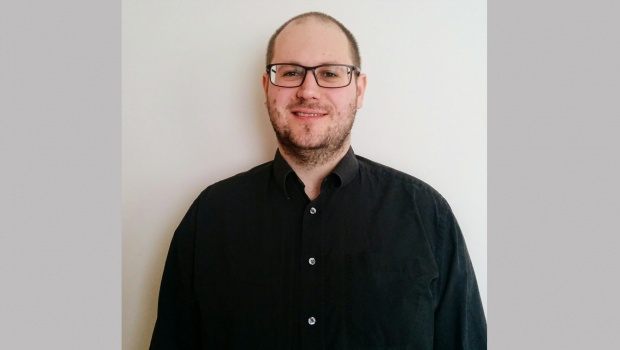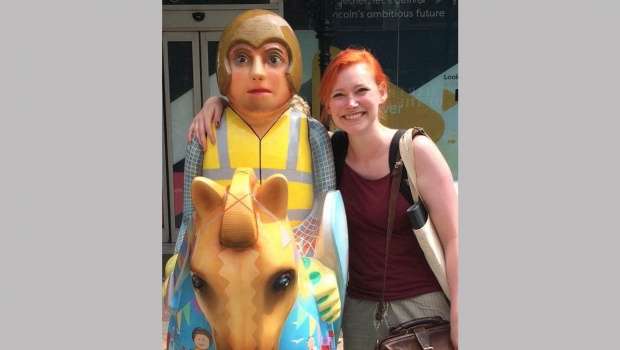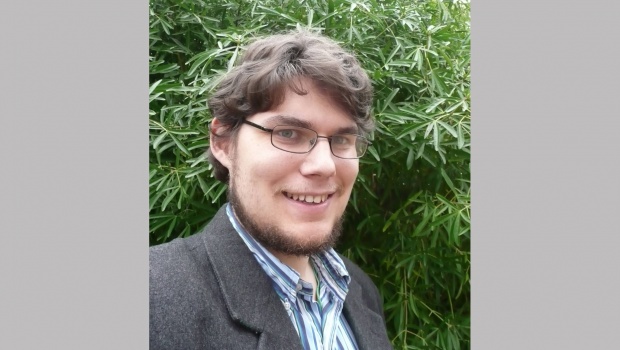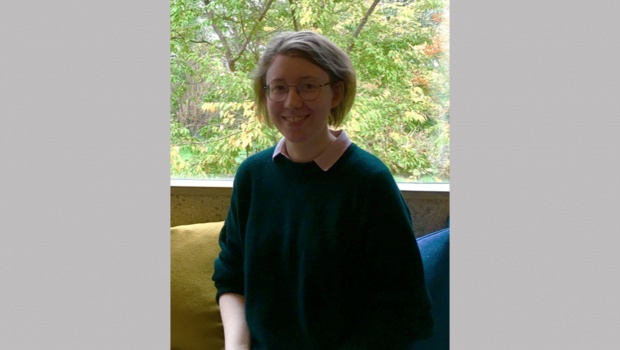Profile: Emily
‘As I embarked on the three-year course, I didn’t quite realise the breadth of the programme here. The balance of lectures, classes and supervisions gives you the scope to be composing ancient Greek prose, reading Latin poetry, interpreting the images from a Greek vase, learning from globally-renowned scholars in ancient history, and battling with philosophical concepts, all in one day!
Classics attracts an amazing range of people. Click on their profiles to find out more.
Students answer: Why do you study Classics?
Profile: Evie
My parents have always used the phrase when one door closes another one opens - one of those corny exchanges which at 17 you just try to ignore. But it proved true in my case. With my English Literature application cast aside I turned to what had always been my true love - Classics.
Profile: Meenakkhi
Meenakkhi, former Classicist, now on the Law conversion course…
Profile: Katherine
I didn’t know I wanted to study Classics until I was accepted to spend the spring of my third year in undergrad at Pembroke as a Classics student. When I got to Cambridge, my supervisors went above and beyond. They were committed to meeting me where I was at in my studies (which was often a very different place from my more experienced peers at Cambridge) and to pushing me to think about literature in completely new ways. Being a quasi-undergrad at the Classics Faculty meant that I had a wealth of opportunities at my fingertips to explore Classics outside the Faculty as well—exhibi
Profile: Matthew
I was lucky enough to attend the Sutton Trust Summer School in 2015, which introduced me both to Cambridge and to Classics. Previously, I was unsure about which subject and where to apply, however the Sutton Trust Summer School allowed me to engage in the pleasurable rigour of university learning; with the satisfaction of working among likeminded people, learning from experts at the forefront of their fields and experiencing the unique Cambridge culture. This opportunity convinced me that Classics was the right subject, and Cambridge the right place to apply.
Profile: Nnenda
“Classics? Class-what?” my parents used to say! To be honest I didn’t know there was such a degree, and even when I found out what Classics was all about I didn’t think you could actually study that at university. Having said that, I always loved reading Latin texts in school, and thank goodness Latin was compulsory because without that first encounter I think I would have missed out on such a wonderful opportunity to study Classics at Cambridge. My original plan was actually to study Engineering at uni.
Profile: Dr James Warren
I was lucky enough to go to a comprehensive school with a Classics department and I began to learn Latin in my second year. The inspirational teaching and the richness of the subject drew me in so I knew early on what I wanted to study at University. At Cambridge I was able to begin learning Greek and I found that ancient philosophy was really what I wanted to do. I’ve been in Cambridge ever since. I am not quite sure, really, what Classics is and what holds it together as a subject. In many ways it is a curious combination of disciplines united by a fascination for a certain per
Profile: Victoria
‘I had not previously had the opportunity to study Classics, so my week at Cambridge with the Sutton Trust Summer School was a completely new experience, which I found to be very rewarding, both personally and academically. While I enjoyed all aspects of the course, a particular highlight was being introduced to so many enthusiastic students and staff who shared the same passion for Classics and for studying as myself.
Profile: Dr Sophia Connell
I came to Cambridge to study in the Classics Faculty as a Post Graduate student, having studied Philosophy in Canada. I was welcomed and nurtured here. Coming from Philosophy, I had a lot to learn about what was going on in the world around ancient philosophical thought, what brought it about and why it had the flavour it did. I began to see why science and other branches of study were not separate, how to study of the natural world was to be a philosopher.
“Cambridge is a great place to study Classics. There’s a world-famous library, a unique collection of life-size copies of ancient statues, and over 250 friendly students who’re interested in the same things.”
Profile: Alicia
For someone as indecisive as myself, choosing Classics was a decision I wasn’t afraid to make. Due to the vast array of disciplines on offer (Art and Architecture, Linguistics, Philosophy, and Ancient History, on top of the language and literature of both Latin and Ancient Greek), there really is no course more exhilarating.
Profile: Sarah
“A triumvirate of fantastic Classics teachers were responsible for taking me from an 11-year-old who listened to Greek myths on cassette to the 21-year-old Classics MPhil student I am today. My school careers adviser told me to ‘be realistic’ when I tentatively said I might apply for the Classics BA at Cambridge; I’m will forever be glad I didn’t pay much attention. When my old Latin teacher told me that Classics was a way of understanding everything about the world, he wasn’t lying.
Profile: Jerry Toner
I am a Roman historian and Fellow of Churchill College where I am the Director of Studies in Classics. I am an Affiliated Lecturer at the Classics Faculty and I lecture on subjects like Roman popular culture and various aspects of the late Roman empire, such as poverty, sin and what it meant to be a barbarian. My research looks at the Roman world “from below”. Historians have traditionally focused on the Roman elite, partly because they produced the overwhelming majority of our literary sources.
Profile: Pawel
I thought studying in London and Paris was the ultimate privilege. But it is Cambridge that makes me feel I am in the right place. With cows and wild horses around it feels more familiar to my rural home in eastern Poland. Cambridge college and faculty communities make me feel always welcomed. While they certainly challenge me at a personal and academic level, at the same time they create a truly unique environment to flourish. Its all thanks to accessibility, I think.
Profile: Paul Cartledge
“An Oxonian ‘Greats’ man by original formation, I found the intellectual air on the other side of Bletchley to be far more bracing and congenial, when I arrived to join the Faculty in 1979. Just a few years later, the ‘X’ (interdisciplinary) Caucus was founded, again something right up my - comparativist historian’s - street. I gave individual supervisions at one point for 26 out of the then 31 colleges - needs must. It’s something I miss quite acutely after my retirement (2014).
Profile: Nick Denyer
Looking back to very early childhood, I remember thoughts of a kind that I have later learnt to label “philosophical”. For example, I was much puzzled by the fact that whenever I felt rain on one hand, I could also feel it on the other. From this fact, it seemed to follow that if ever it is raining in any place, then it is raining also in places close by that place, and therefore in places close by places close by that place,…and so on, so that if ever it is raining anywhere, then it is raining everywhere all at once - which is not in fact the case.
Profile: Nick Zair
At school I was lucky enough to do Latin A-level and Greek, French and Italian GCSE. I knew I enjoyed languages - the older and weirder the better! After considering ASNC at Cambridge, I chose to study Classics at Oxford, where I did all the linguistics/philology options I could, and then switched to linguistics for my Master’s and Doctorate, with a particular focus on the Celtic languages (including Old Irish, Middle Welsh and Gaulish).
Profile: Hanneke
After moving school at 14 and taking Latin almost as a joke I quickly decided that I wanted nothing more than to read Latin and do Classics forever. Amazingly, over a decade later, I am doing exactly that. I arrived in Cambridge in 2011 and spent my undergraduate years constantly slightly awestruck while getting through a very large amount of very varied work. But almost from the beginning it had been classical art that had grabbed me particularly, and that I found I could talk about for the longest!
Profile: Daniel
My love of Classics probably has to be blamed on my parents. My mother is a musician specializing in Mediaeval and Renaissance music, so I grew up listening to Latin songs. For his part, my dad contributed by reading me The Odyssey as a bedtime story when I was around 8 years old, and I have considered it one of my favourite stories ever since.
Profile: Fran Middleton
My research in Classics is led by an interest in poetics, how societies operate and how the two are related. As a teenager, I now realise, my interests were very similar, though I could not articulate them this clearly. I was endlessly fascinated by novels, television programmes and computer games which were set in fantasy universes and examined alternative sets of social rules. I listened to loud, difficult music for as many minutes of the day as I was able, and would learn all I could about the subcultures it had grown out of. At school, Latin was the subject where we would be m
